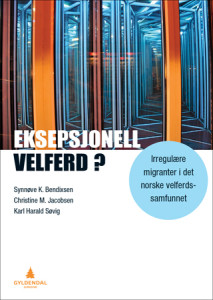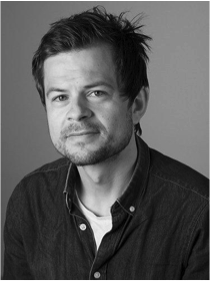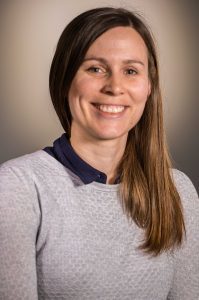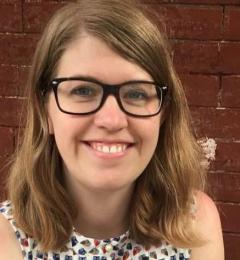Exploring Diversity SEMINAR SERIES
WORKSHOP
“Transnational(ism)” in IMER-research – Networks, boundaries and mobilisation –
In recent years there has been a general increase in empirical research and theoretical engagement with transnationalism and transnational networks. In regard to the field of international migration and ethnic relations, transnationalism has been hotly debated and a central concern for research. Some approaches have focussed on the more manifest, organizational aspects of relations between sending and receiving countries, such as studies of remittances, migration patterns etc. Others have focussed on phenomenological dimensions; transnational social imaginaries, the stretching of lifeworlds in time and in space. Another division is between research following a more traditional Diaspora-approach, exploring the networks and transactions between “mother”- and recipient countries, and research focussing on migrants’ “double consciousness” as a more persistent dimension in the migrant situation. Both approaches include the meaning and the politics of borders and boundaries, but in different ways. Whereas the first approach tends to centre nation and ethnicity as imperative identity-dimensions in transnational mobilisation, the second approach opens other venues for research on transnational imagination and action. This second approach is perhaps more clearly envisioned in Paul Gilroys work on the Black Atlantic. Gilroy’s transnationalism is one that looks beyond ethnicity and nation as identity-construction dimensions, and focuses on the potential transnational solidarity stemming from being reduced to the other within the nation-state framework. If the first, and traditional, transnationalism approach focuses on the positive aspects of national and ethnic identities, the second approach departs from the negative aspects of the very same identities. These different approaches can again be seen to lead to different research focuses and also to different forms of political mobilisation.
This workshop brings together scholars who work in the intersection between transnationalism research and IMER-research. The purpose is to critically discuss what is meant by the terms “transnational” and “transnationalism”, and to provide some theoretical, methodological and empirical guidelines to research. How do we distinguish between “transnational” and “postnational”, how is the conceptualisation of transnational(-ism) linked to debates in globalisation theory, and how do we incorporate material, political and cultural aspects in research on transnationalism and migration?
IMER-Bergen has at present three research projects in the field of transnationalism research. Two of these focus on transnational mobilisation among young adults of ethnic minority background, the third focuses on different forms of transnational relations and mobilities, their spatial logics and the politics of space/place.
Exploring Diversity SEMINAR SERIES
WORKSHOP program
“Transnational(ism)” in IMER-research – Networks, boundaries and mobilisation –
| Tid : | Mandag 17 Desember 2007, 10.00-17.00 |
| Sted : | UiB, Lauritz Meltzers hus, 9 etasje, Seminarrom. |
| 10.00 | Mette Andersson, UiB |
| ” Begrep og forskningsfokus” | |
| 10.30 | Thomas Olesen, University of Aarhus |
| “The Porous Public” | |
| 11.00 | Spørsmål og diskusjon |
| 11.30 | Pause |
| 11.45 | Garbi Schmidt, Danish National Institute of Social Research |
| “Transnational or Universal? Muslim Identity Forming Across National Boundaries” | |
| 12.15 | Spørsmål og diskusjon |
| 12.45 | Lunsj |
| 13.45 | Øivind Fuglerud, UiO |
| “Transnational practises and diasporic identification: Lessons from the Tamil case” | |
| 14.15 | Spørsmål og diskusjon |
| 14.45 | Pause |
| 15.00 | Elisabeth Eide, UiO |
| “Caricatures turning transnational – and landing in national contexts” | |
| 15.30 | Spørsmål og diskusjon |
| 16.00 | Generell diskusjon (slutt 17.00) |
The workshop is organized by Mette Andersson, Associate Professor, Dept. of Sociology , UiB and Knut Hidle, Research Director, Agderforskning
Exploring Diversity SEMINAR SERIES
WORKSHOP
“The Crystallisation of National Identities in Contemporary Europe”
Open IMER/UiB Workshop
This workshop will deal with a trend in many European states which may be referred to with labels such as the ‘crystallisation’ of national identities or neo-nationalism.
The workshop will examine questions like: is there a particular encompassment of globalisation by the European nation-states, generating neo-nationalism or the crystallisation of national identities? Are neo-nationalism and crystallisation inherent results emanating out of emerging European state-forms influenced by globalisation? Is the historical European national diversity generating something specific European which manifests itself in these contemporary phenomena? Or are there, at the level of generation, a restructuration of political universes and modes of citizenship where neo-nationalism and/or crystallisation of national identities are concomitants? If so, which are the key structurating forces? What (new) (world) order would such neo-nationalism and/or crystallisation imply? To whom would it give more power and legitimacy?
Workshop programme :
Wednesday September 17. :
13.15 – 16.30
1. Yngve Lithman: Welcome and Introduction
2. Bruce Kapferer: Globalization and the Nation State.
3. Mette Andersson: The social imaginary of first generation Europeans.
Thursday September 18. :
09.15 – 12.15
1. Andre Gingrich: “National Identity Inc.”: Uncertainties, politics of emotions, and the fading of European visions.
2. Sigalit Ben-Zion: The problem of the crystallization of national identity in Europe in the post-multiculturalism era.
3. Yngve Lithman: Nationalism, Chrystallization: observations from Scandinavia.
13.15 -17.00
1. Christian Joppke: Changes in the conceptual of citizenship in contemporary Europe: Liberalism and the nation.
2. Elisabeth Ivarsflaten: The anti-racism norm in Western European immigration politics: Why we need to consider it and how to measure it.
3.Hakan Sicakkan: Tracing the de-crystallization of European national identities: humanitarian sovereignty sharing, alternative public spaces and invented belongings.
WORKSHOP
Migration in Nordic societies: Recent perspectives
The workshop is organised as a collaboration between IMER Bergen and the Department of Sociology, UiB. It is open for all interested researchers and students.
Program:
09.00: Welcome by Lise Widding Isaksen (Dept. of Sociology, UiB).
09.15: Helle Stenum (Danish Institute for International Studies, Copenhagen): “Bane and Boon, Gains and pains; Dos and Don’ts. Moral economy and flexible citizens in au pair migration”.
09.45: Coffee break.
10.00: Lise Widding Isaksen (Dept. of Sociology, UiB): “Domestic Workers and Political Agency”.
10.30: Mariya Bikova (Dept. of Sociology, UiB): “Au pair Migration Norway – Philippines”.
11.00: Discussion. Discussant: Christine M. Jacobsen (IMER Bergen and Dept. of Social Anthropology, UiB).
12.00 – 13.00: Lunch break.
13.00: Anna Gavanas (Institute for Future Studies, Stockholm): “Migration, in/formalization and the expanding domestic service sector in Sweden”.
13.30: Vera Galindabaeva (European University, St. Petersburg): “The Effects of Rural-Urban Migration on Transformation of Child Care Arrangemenst in Buryat Rural Families in Post-Soviet Russia”.
14.00: Coffee break.
14.15: Synnøve Bendixsen (IMER Bergen and Uni Rokkan Centre): Ethiopian Irregular Migrants’ demonstration in Oslo Cathedral.
14.45 -15.30: Discussion. Discussant: Lise Widding Isaksen (Dept. of Sociology, UiB).
Friday 7 October, 09.00-15.30.
Faculty of Law, Seminar room 1, Magnus Lagabøtesplass 1.
WORKSHOP POSTER
IMER Abroad: PROVIR Seminar – Precarious migrants and access to welfare: Between policy, law and practice
This workshop will discuss the legal and experienced dilemmas found in the encounter between migrants living in a legally precarious situation and the welfare state in which they reside. Participants will present ongoing empirically based research on migrants’ access to welfare in policy, law and practice in various European countries. They will also discuss the particular position of youth and children in vulnerable situations. The program is available here.
Redigert av Christine Jacobsen, Synnøve Bendixsen, Karl Harald Søvig
 Irregulære immigranter har på noen områder full tilgang til velferdsytelser, men på mange områder er tilgangen svært begrenset enten i form av rettsregler eller andre barrierer. Denne antologien undersøker forholdet mellom rettslig rammeverk, institusjonell praksis og hvordan irregulære migranter selv erfarer sin situasjon.
Irregulære immigranter har på noen områder full tilgang til velferdsytelser, men på mange områder er tilgangen svært begrenset enten i form av rettsregler eller andre barrierer. Denne antologien undersøker forholdet mellom rettslig rammeverk, institusjonell praksis og hvordan irregulære migranter selv erfarer sin situasjon. Med en unik kombinasjon av juridisk og antropologisk blikk, går boken regelverket nærmere i sømmene, drøfter gatebyråkraters utfordringer og hverdagslivet til irregulære migranter og deres barn.
Hvilke regelverk får konsekvenser for irregulære migranters levevilkår? Hvordan blir dette regelverket forstått og etterfulgt av gatebyråkrater? Og hvordan blir hverdagslivet til irregulære migranter og deres barn påvirket av regelverket og dets fortolkning?
Denne boken er aktuell for velferdsprofesjoner som møter irregulære migranter som en del av sin yrkesutøvelse. Både leger, sykepleiere, helsesekretærer, lærere, helsesøstre, skolerådgivere, sosialarbeidere, sosionomer og barnevernspedagoger vil ha god nytte av Eksepsjonell velferd? Irregulære migranter i det norske velferdssamfunnet. Boken retter seg også mot frivillige organisasjoner som jobber med ulike aspekter ved migranters situasjon i Norge og andre som er engasjert i temaet.
The populist radical right has emerged as the spearhead of a larger renationalization process directed against positions of global and European integration. Based on anthropological fieldwork in the postindustrial towns of Doncaster (South Yorkshire, UK) and the Hungarian town of Ózd in 2015, the paper examines the various historical, material and socio-economic factors in the rise of Ukip (United Kindom Independence Party) and the extreme right-wing Jobbik (Movement for a Better Future).
In their politics of fear, minorities and migrants are marked as posing cultural-religious threats to communal harmony and the nation-state. Through participant observation and interviews with Ukip and Jobbik politicians and supporters, the paper examines how knowledge about ‘threatening others’ is produced, circulated and contested.
 Dr. Cathrine Thorleifsson holds a PhD in Social Anthropology from the London School of Economics and Political Science (2012). Her chief theoretical interests lie in anthropological approaches to the study of nationalism, migration, borders and xenophobia.
Dr. Cathrine Thorleifsson holds a PhD in Social Anthropology from the London School of Economics and Political Science (2012). Her chief theoretical interests lie in anthropological approaches to the study of nationalism, migration, borders and xenophobia.
Welcome! A light lunch will be served.
About the Seminar series:
Migration responses
Debating the current refugee crisis in Europe
The IMER Bergen Seminar series for the spring of 2016 will discuss a wide range of responses in the wake of the current migration crisis. How can the theoretical and empirical research currently being conducted on migration, ethnic relations, peace and conflict contribute to understanding the multi-faceted landscape of politics, boundaries and everyday lives of the refugee crisis?
Illustration: Wallpapercave
Hip hop music and the forging of civic bonds among minority youth in Norway
A vast body of research documents that media coverage of ethnic minorities in Norway is systematically imbalanced and problem oriented, which in turn engenders a sense of exclusion. At the same time, hip hop music and artists are today regular fixtures in various media formats, and a genre that comprises a number of prominent performers of multi-cultural background.
Set against the backdrop of the exclusionary effects of news media representations, this interview study of a group of minority youth makes evident that mass mediated hip hop music is for them taken to entail public representation of minority experiences and sensibilities that engender a sense of democratic inclusion.
By combining recognition theory and reception theory, Nærland shows how hip hop-related media coverage is experienced to involve a positive affirmation of minority identity that also contributes to the formation of civic identity and affinities. The study argues that musical media events constitute ‘moments of recognition’ where dynamics of recognition is intensified.
 Nærland further argues that recognition theory makes up a valuable supplementary framework for our theoretical understanding of the civic dimensions of media reception, and the role of popular music therein.
Nærland further argues that recognition theory makes up a valuable supplementary framework for our theoretical understanding of the civic dimensions of media reception, and the role of popular music therein.
Welcome! A light lunch will be served.
About the Seminar series:
Migration responses
Debating the current refugee crisis in Europe
The IMER Bergen Seminar series for the spring of 2016 will discuss a wide range of responses in the wake of the current migration crisis. How can the theoretical and empirical research currently being conducted on migration, ethnic relations, peace and conflict contribute to understanding the multi-faceted landscape of politics, boundaries and everyday lives of the refugee crisis?
If a LGBTI person can “stay in the closet” in the country of origin, should she then be denied asylum as a refugee? This is currently a thorny issue for several European countries, when facing asylum seekers who apply for protection on the basis of their sexual orientation or gender identity. For this IMER seminar, Andrea Grønningsæter from the faculty of law at UiB will discuss how this is currently practiced in Norway.
Research has shown that that LGBTI people (lesbian, gay, bisexual, trans and intersex people) often face specific legal and procedural challenges when applying for refugee status. In a number of jurisdictions, including Norway, LGBTI asylum seekers have been denied refugee status with reference to the fact that they can abstain from behavior that may result in a risk of persecution. A gay person can live as a gay within the confines of the home, for example, but not on the streets – and may thus not be granted protection. It is then concluded that the requirement in refugee law of establishing a ‘well-founded fear’ of persecution is not fulfilled, because concealment will mean that the asylum seeker is not revealed to potential persecutors.
In 2012 the Norwegian Supreme Court considered the right to refugee status based on sexual orientation (Rt. 2012 s. 494). In the court’s decision it was stated that a gay person may not be required to hide their sexual orientation in the country of origin to avoid persecution. In cases where it is concluded that the asylum seeker will choose to conceal their sexual orientation, the court established a step-by-step approach for assessing whether the asylum seeker is entitled to refugee status.
For her PhD project, Grønningsæter looks at how the approach that was established by the Supreme Court in 2012 for assessing asylum cases based on sexual orientation or gender identity is interpreted by the courts and the immigration authorities. She explores how the courts and immigration authorities establish the asylum seeker’s reason for concealment, as well as how concepts such as ‘being open’ or ‘discreet’ about sexual orientation or gender identity is understood.
A light lunch will be served. Welcome!
Andrea Grønningsæter is a PhD candidate at the Faculty of Law, Bergen University.
‘Crimmigration’ has become a critical “catch all” concept for legal scholars, criminologists, and sociologists alike. The concept describes the way two previously separate state control spheres – border control and crime control – influence each other and are part of the same control mechanism experiences and developments. This concept, for example, helps understand Trump’s effort to legitimize the tightening of immigration policy. It refers to both the protection of American economy and jobs and the explicit intent to protect American citizens from terrorists, rapists, and gang members. For this IMER lunch seminar, Synnøve Jahnsen from Rokkansenteret will talk about the usefulness of crimmigration as a concept in other settings. She will draw on empirical examples from her research on prostitution and human trafficking, Norwegian labour market crime policies, and the policing of outlaw motorcycle clubs and youth gangs in Australia and Europe. She will also use the opportunity to promote her new co-edited book “Criminal Justice in the Era of Mass Mobility” and highlight some of the methodological challenges faced by researchers in her field.
A light lunch will be served. All welcome!
 Synnøve Jahnsen is a postdoctoral research fellow at Rokkansenteret where she specializes in the sociology of law and criminal justice.
Synnøve Jahnsen is a postdoctoral research fellow at Rokkansenteret where she specializes in the sociology of law and criminal justice.
Non-governmental organizations (NGOs) work closely with refugees by providing services and assistance. However, refugees might also be subjected to misconduct by NGOs. In such a scenario, how can NGOs be held accountable for wrongful acts?
For this IMER lunch seminar, Marianne Nerland from the Faculty of Law at UiB will present preliminary findings from her PhD project which explores recourses available to refugees seeking justice against NGOs. By drawing on interviews conducted with refugees as well as aid workers in Kakuma refugee camp in Kenya, Marianne will argue that there are serious legal obstacles that refugees face when wanting to file complaints against NGOs. This case highlights the need for an enhanced structure for NGO accountability in refugee camps.
A light lunch will be served! All welcome!
 Marianne Nerland is a PhD candidate at the Faculty of Law, UiB
Marianne Nerland is a PhD candidate at the Faculty of Law, UiB

